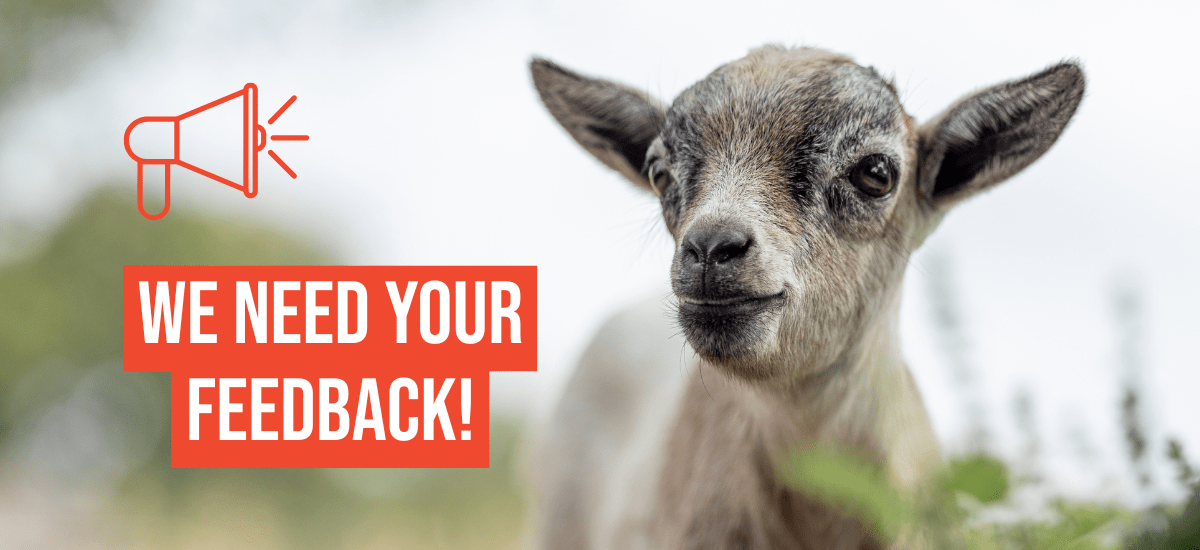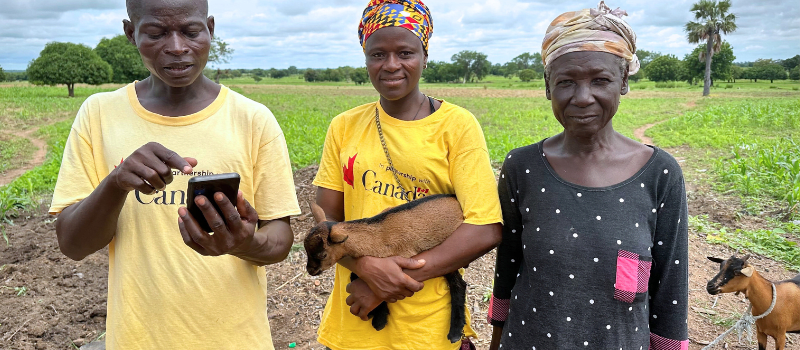YELLOWKNIFE, NT, July 27, 2023 – Following an unrelenting wildfire season across Canada’s North, the community of Behchokǫ̀, located about 100 kms northwest of Yellowknife, NT, has been evacuated as fires have engulfed the area. Community members have been evacuated, along with local animals, including three young puppies that were pulled from a blazing Behchokǫ̀, NT shed by a firefighter. The rescued pups, from an unidentified shed, are estimated to be about six weeks old, and were evacuated to Yellowknife, where they are now being cared for at the NWT SPCA. Veterinarians Without Borders/ Vétérinaires Sans Frontières (VWB/VSF) is working closely with the NWT SPCA to ensure animals evacuated from Behchokǫ̀ can secure temporary boarding, pet food, and veterinary care, as needed, including vaccinations to ensure diseases don’t spread within boarding facilities. VWB/VSF and the SPCA are working to identify the puppies’ human guardians with the goal of reuniting them.
“We’re so grateful that these puppies were rescued and are currently in good health and being monitored at the NWT SPCA,” said Dr. Michelle Tuma, northern Canada veterinary specialist at VWB/VSF. “The brave firefighters and community volunteers who have been working around the clock to evacuate these animals that would, otherwise, have virtually no other opportunities to escape the wildfires are true heroes,” said Tuma.
The firefighter who pulled the pups from the shed is a team member with No Surrender Fire Services out of Sundre, AB.
Evacuees from Behchokǫ̀ in Yellowknife are currently able to access government-provided accommodations, however, many of these sites do not permit animals indoors. This means that many pet guardians have been forced to leave their pets in vehicles outside or find other temporary solutions. VWB/VSF and NWT SPCA are working to secure temporary boarding as options for these animals and their guardians. Currently, all access to Behchokǫ̀ has been closed, as the wildfires continue to burn.
"There are several people from Yellowknife working together to coordinate getting dogs and cats out of the community and also to connect them with their owners once we have them out and safe," said Nicole Spencer, executive director of NWT SPCA. "It takes a village to get something this big going. We are so grateful to everyone that is participating in this group effort. Once the road opens up again, I really hope we can get all animals safely out and reconnect them with their families," Spencer added. "The SPCA shelter has taken in several dogs and cats from the evacuees, including a mom with eight newborns, however we are limited to how many we can accommodate due to us being at capacity. Our staff and volunteers are working hard to take care of every animal in our shelter," said Spencer.
Anyone interested in supporting VWB/VSF’s Emergency Response Effort to help animals that have been evacuated from Behchokǫ̀ can donate or learn more using the resources listed below.
Important resources
- Anyone interested in supporting the Emergency Response Effort can donate or learn more at: https://www.vetswithoutborders.ca/site/donate-northern-animal-health-initiative
- Anyone interested in helping to walk dogs at boarding facilities, please sign up here: https://www.vetswithoutborders.ca/site/volunteer-wildfire-response
- Locals (Yellowknife, NT) who have space at their home or properties to temporarily house an animal can contact caroline_cochrane@ntassembly.ca to be put on the foster home coordination list.
- Any SPCA fosters who are available to help can contact dogs@nwtspca.com to assist with current shelter dogs.
Photos
Additional photos can also be downloaded here.

Media Contact
Laura Eley
Communications Officer
E: laura@vetswithoutborders.ca
C: +1 343-633-0272, x 114
About Veterinarians Without Borders/Vétérinaires Sans Frontières
Using a One Health approach, Veterinarians Without Borders (VWB) works for, and with, communities in need to foster the health of animals, people and the environments that sustain us. VWB works in Africa and Asia to improve the living conditions of the most disadvantaged rural populations through veterinary and agricultural services, sustainable animal production, training, value chain development and sustainable natural resource management. Additionally, we support remote Northern Canadian communities to improve animal health through temporary spay and neuter clinics, reduce the spread of rabies, and work to create the conditions for long-term, community-led sustainable animal health services.
Learn more at vetswithoutborders.ca
About the Northern Animal Health Initiative
The NAHI program is focused on increasing access to animal health services in the Canadian North by providing services and resources to strengthen capacity in remote communities in Nunavut and the Northwest Territories. VWB/VSF develops partnerships with remote communities in the Canadian territories upon their invitation. Together, they work to identify needs and build a plan with community representatives and leadership to strengthen local capacity to address animal care needs year-round. This includes offering annual temporary veterinary clinics with a team of volunteers. VWB/VSF’s goal is to build a sustainable framework that will create the conditions for lasting, community-driven animal health.
-30-





